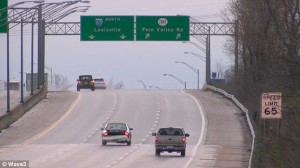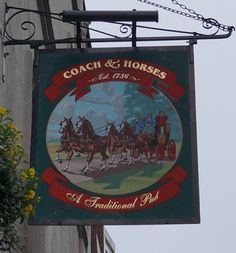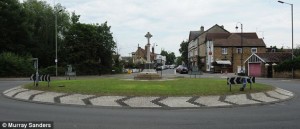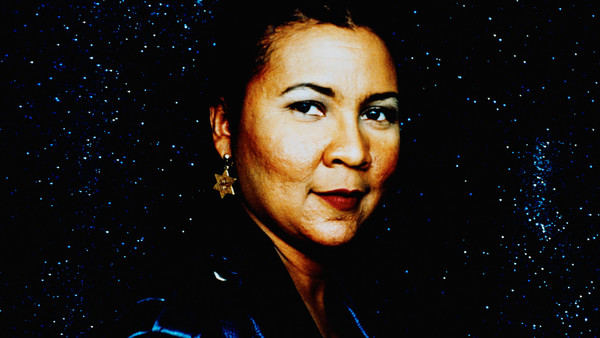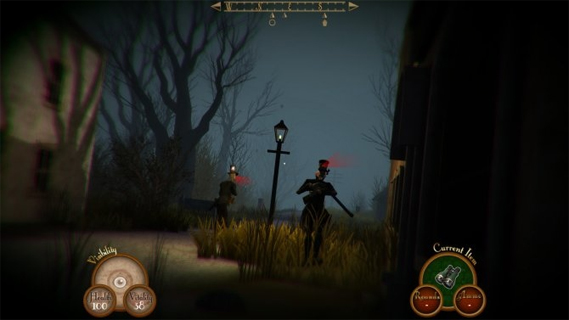I spent a large portion of my winter break on the road. I went up to Minnesota to visit my parents for a week, and as soon as I touched down in Indianapolis I began my drive South to visit my partner in Kentucky and my friends in Alabama. Other than small diversions, this drive consisted entirely of traversing I-65, a beautiful but relatively dull stretch of interstate. As far as road trips go, it wasn’t the longest amount of time I’ve spent in a car, but driving across the southern states under starlight, through snow storms, navigating around semi trucks and accidents, made me nostalgic for the road trips of my past.
My family and I took many road trips in my childhood, both when we were living in the US and living in the UK. Some of my earliest memories involve my sitting in the backseat of one car or another, watching the forests of Oregon or the turnpike of New Jersey zip by. When we moved to England, we continued the tradition of driving to new and interesting places to explore and experience British culture beyond the small collection of streets we called home in central London. In the thirteen years my family lived in England, we practically drove from one end of the small island to the other, visiting towns and cities everywhere from Cornwall to Newcastle. Sometimes we took day trips along the narrow winding highways, other times we would stay overnight in cottages or bed and breakfasts. We explored crumbling old castles and ancient burial grounds. My parents love history, and years of traveling in a country with so much of it infected me with a similar appreciation.
These road trips were yet another source of my love of games. Last week I talked about the games my family plays together, and long drives were no exception. Road trip games aren’t uncommon, and in an effort to keep their two small children from bickering for hours at a time, my parents made use of every game in the book to keep us entertained. What made these games interesting was how much they impacted my life beyond the long drives and cross-country adventures. I’m not exaggerating when I say that one of these road trip games is part of the reason I ended up in Rhetoric and Composition.
Let me explain.
My family moved to England when I was five, and over time my parents became good friends with the parents of other kids our age. When we began our frequent adventures outside of London’s city limits, my dad made use of a game suggested by my mother’s colleague, who also had two small children. The rules were simple, and involved a common landmark on British backroads: the pub.
The game, referred to as the Pub Leg Game, involved the right side passengers of the car competing with the left side passengers. Every time the car passed a pub during the journey, players would look at the name of the pub. British pubs have a variety of creative and significant names all across England, being called everything from The Queen’s Head to The Beehive, The Coach and Horses to The Fox and Hounds. If the name of the pub included anything with legs, for instance, a pub called the Queen Victoria, then the side of the car that passed it would get points based on the number of legs the name of the pub entailed. So, passing the Queen Victoria would result in two points. Points were tallied with every passed pub until the end of the journey, and the side of the car with the most points would win.
As I said, a simple game, except for the part where it ultimately wasn’t. Over time my sister and I quickly realized that some pubs had names that left the number of legs ambiguous. The Coach and Horses was a prime point of contention in this case, because we would bring up valid points about just how much this pub would be worth. How many horses were there? Two? Three? That was the difference between eight and twelve points, and therefore essential knowledge. Was there a coachman and did passengers in the coach count? Could they be counted, since the name of the pub was the coach and horses, not the coachMAN and horses? After several instances of this controversy, my father instated an addendum to the rules, wherein pubs with ambiguous leg counts would be clarified through observation of the pub’s sign. Pub signage is an art form in and of itself, and made a tradition of depicting an image of whatever the pub was named, and thus arguments over the Coach and Horses could be easily resolved by seeing that the picture featured two horses and one coachman. Ten points, and all was well.
This was not the only controversy present in this game, and as we grew older my sister and I began comprehending the subtleties of the game more coherently, leading to hours long arguments and bitter disagreements that my family holds grudges over to this day. The thing we learned quickly was that ultimately, the driver held a kind of executive power over the game, which meant my father had the ability to choose the paths we traveled, held the guidebooks outlining famous pubs and landmarks in big cities, and therefore held a significant advantage. If he knew a city we were passing through had a pub called The Eagle and Child, he could plan our route in such a way that his side of the car earned those points. When it was all four of us driving, this didn’t bother me as much — I tended to sit in the seat behind my dad, so the two of us were united against my mum and sister in various rounds of the game — but when my mother had to work and it was three of us on a road trip, my sister and I would be playing against my father, and that was when the game would get dirty.
There’s a traffic circle, or roundabout as it is colloquially known, in or around the Windsor area in England. On one side of this traffic circle sits a pub called The World. One of the longest running arguments in my family is based on this pub, its name, and its physical location. My father, seeing the pub as an opportunity for points, went around the traffic circle three times more than necessary, ‘missing’ our turn and proudly declaring himself the winner of the game, because what has more legs than all the people of the world? I objected strongly, not just to his underhanded tactics, but to his assignation of that many points to himself. The name of the pub was the World, after all, not the people of the world. The name referred to the physical globe and not the citizenship, therefore from where I stood, it had no legs at all. Pubs with names like these led to the greatest controversies, where we would argue for days after about exactly how to define a pub named ‘the world’ in terms of points. I stand by my assessment that the pub referred to the globe and planet itself, not the people who lived there, and my father should not have won that round of the game, especially not for his underhanded roundabout tactics. It’s been over twenty years and my family will still argue over the legitimacy of my father’s strategy. In the Hibbard household, nothing is taken more seriously than games.
Years later, reflecting on my parents’ use of games to keep my sister and I distracted and happy on long trips, I also see a different benefit, which is where my love of rhetoric comes in. I was the kind of kid who questioned literally everything, was curious about the why and the how of a circumstance and unable to be satisfied until I got answers. Rigorous debate and civil argument became a common pastime in my house, and whether we were discussing the results of the latest round of the pub leg game or discussing history and politics, my parents encouraged my push back on everything. The games we played helped me interrogate my environment, understand the complexity of rules and the importance of specific definitions. As we got older and my sister and I grew less patient with games on long drives, my father liked to make it interesting by placing a five pound note on the dashboard of the car, turning our day trips up to Oxford into heated arguments about routes and rules. My parents are probably unsurprised that I went into rhetoric for a living after years of listening to me complain from the back seat that the pub’s name was the Beehive, not the Bees, so it shouldn’t be worth any points at all.
A road trip game that had the added benefit of teaching my sister and I the nuances of definition and argumentation sounds hilarious at first, but it reminded me that so many other games played on road trips exist for the purpose of learning in some shape or form. When our road trips were along US highways, a lack of pubs to spot meant we played license plate games, car color games, punch buggy games, sometimes we’d even play cards in the back seat when we were in our teens. This transferred over to my time spent with friends on long road trips, the most notable instance being the time I road tripped with friends out to San Diego and back for Comic Con in 2009 and we spent the drive through Arizona and southern Utah playing an abbreviated form of Dungeons and Dragons with the dice we’d just purchased.
The only downside of the road trips I take now is the lack of company. I expect I’ll be spending large chunks of 2017 on the I-65, going back and forth to Southwest Kentucky, and I’ll be hard pressed to find ways to keep myself entertained beyond trying to predict whether or not a sketchy gas station has my favorite kind of off-brand soda. I still tell my friends about the pub leg game though, and more than one I’ve vowed that I’d return to England for one last round of heated argumentation about how many animals are on the sign for The Fox and Hounds. Its good to revisit the games that helped us learn, after all.

